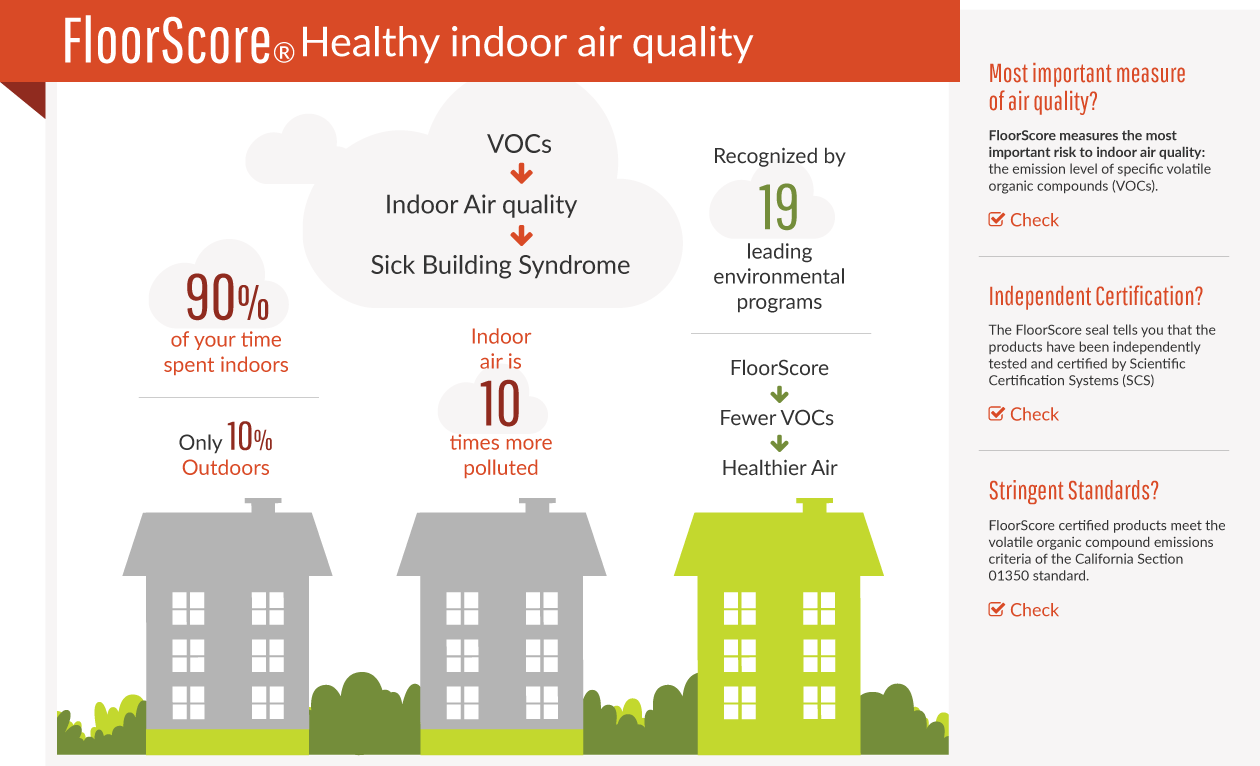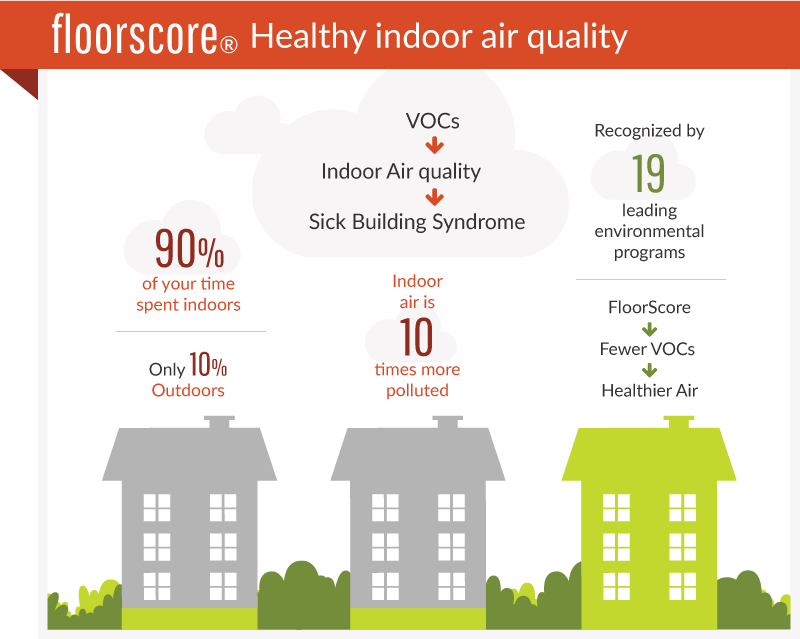What is FloorScore® IAQ Certification?
When it comes to indoor air quality, a primary concern is the emission level of specific volatile organic compounds (VOCs). FloorScore® IAQ Certification means that a flooring product is independently certified by SCS to comply with the volatile organic compound emissions criteria of the California Section 01350 Program. Hundreds of resilient hard surface flooring materials and their adhesives bear the FloorScore® seal. This seal tells you that the products have been independently certified by SCS to comply with the volatile organic compound emissions criteria of the California Section 01350 Program ( California Standard Method for the Testing and Evaluation of Volatile Organic Chemical Emissions from Indoor Sources Using Environmental Chambers, Version 1.2 ). Any product that has met these stringent standards is a product that will contribute to good indoor air quality. The FloorScore® certification means healthier, cleaner air. And that means healthier humans.
Why everyone should care about indoor air quality.
IAQ is important because, if you’re like most people, you spend around 90% of your time indoors. If you’re breathing poor quality air, you could be facing a higher risk level for a variety of health problems, including headaches, dizziness, and more serious long-term conditions.


Important info about FloorScore

SCS is an internationally recognized third-party evaluation, testing, and certification organization. SCS programs span a wide cross-section of the economy, including consumer products, the energy industry, manufacturing and retail, and home improvement and construction.
As a third party independent certification firm, SCS audits and determines whether products qualify for the FloorScore® seal by meeting the requirements of SCS-EC-10.3-2014 v3.0. Under this program, SCS (1) reviews all VOC emissions test reports for particular products generated by independent testing laboratories; (2) determines whether those test results meet the California Section 01350 requirements for listed VOCs; and (3) conducts periodic manufacturing plant inspections to review product formulas, processing, and quality control to ensure the continuing integrity of the FloorScore® seal.
- Laboratory testing for emissions of volatile organic chemicals
- Development and use of a Documented Control System
- Site audits
Links & Documents
FloorScore® Product Certification Requirements
To Apply for Certification, Download SCS FloorScore® Application
Complete Emissions Test Specifications Document
